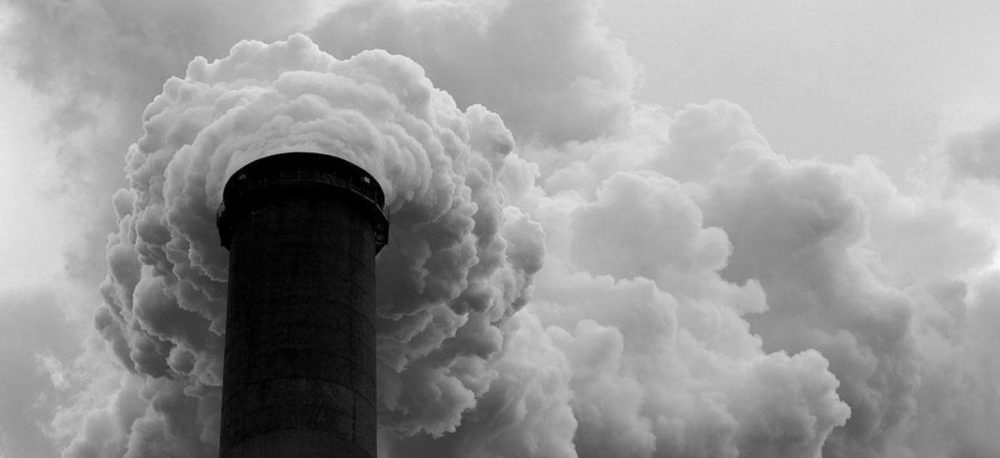The Trump administration’s Environmental Protection Agency (EPA) has released the final version of its “Affordable Clean Energy” (ACE) rule, a carbon emissions standard for fossil fuel-fired power plants.
And it does nothing.
Nothing.
It does nothing despite the agency’s legal obligation to limit carbon pollution from the power sector, the nation’s largest stationary source of global warming emissions.
It does nothing despite the fact that — even in the face of mounting coal retirements — a growing reliance on natural gas led power sector emissions to rise last year, reversing multiple previous years of decline.
It does nothing despite a rapidly growing list of states, cities, and corporations committing to ever higher levels of renewables in recognition of the climate imperative and the economic and public health opportunities from switching to clean electricity.
It just does nothing.
And it does all this because the administration wants all this: a do-nothing rule that boosts the bottom line of a select polluting few, and heaven help the rest.
Regulation In Name Only
To defend the patently indefensible, the administration stares the incontrovertible case for action straight in the face then sinks it six feet deep. The rule ignores the costs of climate inaction, dismisses the enormous potential for public health gains, and disregards the demonstrated ability of the power sector to adapt—and instead advances a nonsensical set of constraints to intentionally limit the agency’s own authority to act.
ACE, which replaces the Obama-era Clean Power Plan, begins with a narrow conception of what’s possible, then repeatedly narrows it further still.
First, the rule only regulates coal-fired power plants, and declines to regulate other significant power sector carbon emitters like natural gas plants. Next, it evaluates just a small subset of approaches for how these sources can reduce emissions, looking only at minor efficiency improvements at the individual source, which is expected to deliver negligible improvements on the order of <1 to a few percent and could even lead to an increase in emissions from those more efficient plants now running more.
At the same time, the rule excludes other source-based options that would deliver actual meaningful change, like carbon capture and sequestration, not to mention the systems-based approach advanced in the prior Clean Power Plan. Finally, ACE creates a mile-wide loophole that would allow any given coal plant to be excused from investing in any upgrades at all.
The result is a rule that does not actually require any minimum emissions reductions and is, at very best, estimated to achieve a half percent of additional emissions reductions by 2035.
A clear case for federal action
It is easy to roll one’s eyes at this action, another in a long line of the Trump administration’s overt handouts to fossil fuel corporations borne on the backs of the public.
But don’t let apathy reign.
This is our nation’s Environmental Protection Agency, charged with a mission to protect human health and the environment, “acting on climate” in a way that prevents it from truly acting at all. The end result is an effective benching of one of our most powerful current forces for change.
Which means we have a real and true climate crisis on our hands.
Because while states, cities, and even corporations are showing up to show us how to lead, that simply will not be enough to get the nation where it needs to go. There are entrenched fossil fuel interests fighting as hard as they can to keep the status quo, and that fight will only grow harder as the conversation shifts to focus on natural gas.
Because coal? The big money’s leaving coal. But gas? That’s a whole new perilous game. And in increasing numbers of skirmishes breaking out all across the country, we have seen the fossil fuel industry start showing up in a major way, fighting to undermine progress and lock in a lasting path dependency that will only make it harder to break away from unconstrained natural gas—and all its climate-incompatible pollution—with every passing day.
And so we need the federal government, to ensure that it’s not just leaders on the path to change, but laggards, too. Because to avoid the worst of climate impacts, that’s what science, and ethics, compels us to do.
But instead of federal leadership, we get this: a carbon rule that declares the solution is to sink major money into coal, an increasingly uneconomic and health-harming vestige of a high-polluting age, while delivering nearly no emissions gains nor any forward momentum for power sector change.
In the process, the agency foments uncertainty around established science, and hypocritically calculates public health benefits to boost its case for inaction while withholding analysis that would support the case for true action.
Indeed, even in the face of Executive Order 12898, which directs agencies to understand and address disproportionate impacts on minority and low-income populations, the EPA flat-out declines, brazenly justifying its decision by explaining that it effectively has no idea how ACE will play out—“doing so would suggest greater certainty in the regional impacts of this final rule than is warranted”—and simply asserts that even though some plants are expected to increase emissions, and thus increase the health-harming pollution borne by those neighboring communities, “on balance” U.S. populations will gain. Shameless.
Plumbing the depths of the indefensible
The ACE rule looks laughably bad on its surface, but in fact, it’s so much worse.
It is the EPA, our EPA, instantiating the evisceration of science to purposefully hamstring its own ability to act on climate, now and in the future. And for what? Not the people, anyway.
The magnitude of the climate crisis has never been clearer; the urgency of the climate crisis has never felt nearer. But actual implementation of the full solution set? It has never, ever felt so far away.
The EPA will be challenged in court, and the administration will be hard-pressed to defend the indefensible. But worse yet will be the leadership squandered, the time lost, the investments wasted, the people forsaken. And again: for what? Nothing but the short-term profits of a select polluting few.
Do not let apathy reign.

